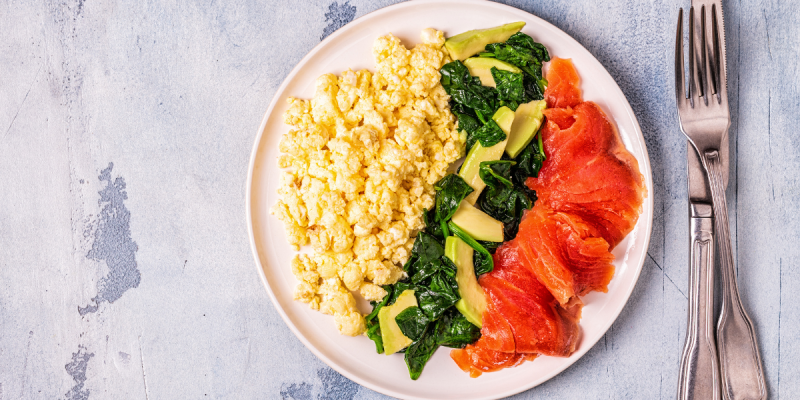A “fertility diet” simply means making healthy eating choices for ovarian health, egg quality, sperm quality, and ultimately a successful pregnancy. What are HEALTHY eating choices?! A diet rich in vegetables, fruits, fiber, and monounsaturated fats is associated with improved fertility in women and better sperm quality in men. On the other hand, a diet high in saturated fat or sugar is associated with decreased fertility in both men and women.
In an eight year observational study, women who followed a “fertility diet” decreased their risk of infertility by 66%. This diet prioritized monounsaturated fats, vegetables, full-fat dairy, and avoided simple carbohydrates. Women who follow these principles tend to have lower rates of infertility and higher rates of healthy pregnancies.

With any “diet” the restriction may feel limiting. Instead, eating for fertility can be as much about inclusion as it is about exclusion. How can you maximize fiber, protein, and high-quality fats in your diet? Often, these things naturally come at the expense of less-healthy choices. For example, choosing nutrient dense berries over high-sugar fruit juice OR walnuts in place of croutons. It may help to focus on these simple swaps in the foods you normally eat. The most important part of any diet is that you find sustainable eating habits that fit into your everyday life.
LET’S TAKE A CLOSER LOOK AT KEY MACRONUTRIENTS FOR A FERTILITY DIET….
PROTEIN
Much of the research vilifying red meat is focused on conventially-raised feed lot meat. However, red meat is a great source of essential nutrients like protein and iron. Grass-fed, local beef or bison is an incredibly nutrient-dense food that can improve fertility outcomes.
>>Sourcing is SO important. I order my meat from Northstar Bison, a ranch located in Northern Wisconsin that ships all over the country<<
A balanced diet filled with varied protein sources is still the gold-standard. A fertility diet should include seeds and nuts, beans, peas, and seafood as alternative proteins that improve overall health.

FAT
Healthy sources of fat are essential for hormone development, neurotransmission, and cell membrane health. Women who are looking to improve fertility should focus on increasing omega-3 fatty acids from seeds, nuts, olive oil, and fish. Certain high-fat foods provide essential nutrients to support fertility. The choline in eggs is important for membrane health and neurodevelopment. Avocado is high in magnesium, and helps support progesterone!
CARBOHYDRATES
Not all carbohydrates are bad. When eating for fertility, the fiber that comes from many foods high in carbohydrate is an essential staple. However, simple carbs such as processed foods, white bread, candy, and soda have a profound effect on blood sugar and should be avoided. High-sugar consumption is associated with lower pregnancy rates AND has been shown to decrease sperm quality in men.
Instead, complex carbohydrates that are lower on the glycemic index provide steady energy and nutrients. These complex carbohydrates include starchy vegetables, legumes, and certain whole grains. For more about fiber, and how it fits into a fertility diet, see this post about the Bean Protocol.

THE BIG TAKEWAYS OF A FERTILITY DIET…
If you’re making dietary changes in hopes of increasing fertility, try not to be too hard on yourself. This is a lifestyle overhaul that involves implementing many SMALL steps. Every healthy choice is positive benefit, and every small deviation isn’t going to completely undo your progress.




4 Responses